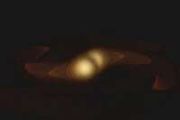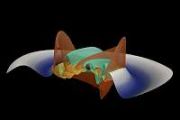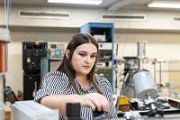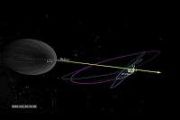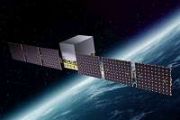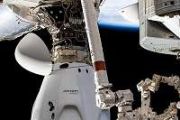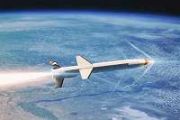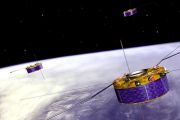
Copernical Team
Plasma spectrometer delivered for moon mission
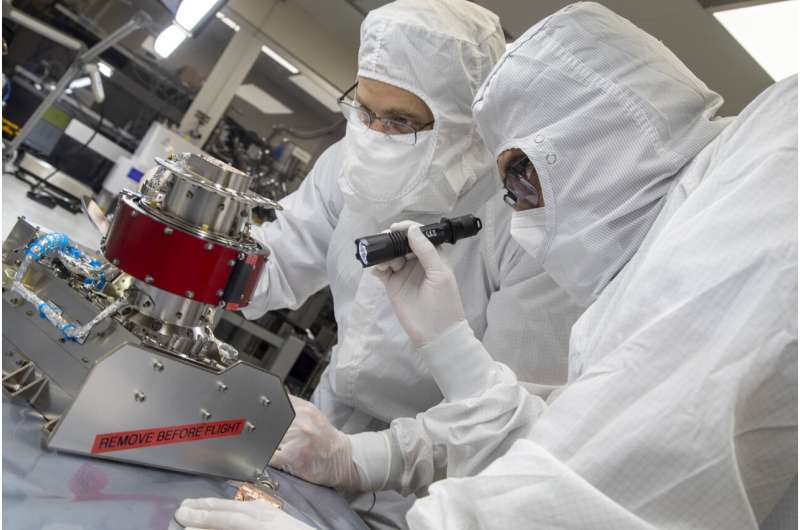
Southwest Research Institute has delivered a plasma spectrometer for integration into a lunar lander as part of NASA's Lunar Vertex investigation, scheduled to commence next year.
Decoding the impact flash created by high-velocity impacts
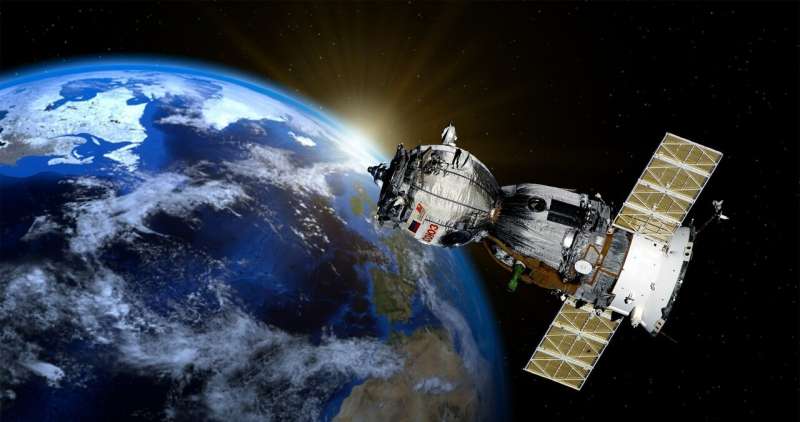
In an experimental study published in PNAS Nexus, researchers explore the visible impact flash that is created by high-velocity impacts.
Impacts by debris and meteoroids pose a significant threat to satellites, space probes, and hypersonic craft. Such high-velocity impacts create a brief, intense burst of light, known as an impact flash, which contains information about both the target and the impactor.
Gary Simpson, K.T. Ramesh, and colleagues explored the impact flash by shooting stainless steel spheres into an aluminum alloy plate, at a speed of three kilometers per second—about 6,700 miles per hour, or more than nine times the speed of sound.
The resulting impact flashes were photographed using ultra-high-speed cameras and high-speed spectroscopy, which measures the color and brightness of the light. Immediately after impact, a luminous disk is seen expanding around the impacting sphere. Only a few millionths of a second later, the disk takes on an almost floral shape, as fragments ejected from the impact crater form an ejecta cone, with petal-like projections at the outer edge.
Plato’s structural test campaign
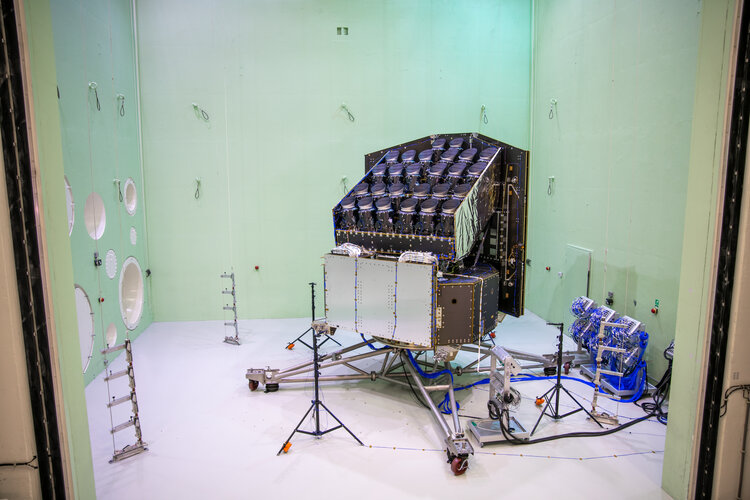
From May to August 2023 a structural model of ESA’s next exoplanet mission, Plato, is undergoing a test campaign at ESA’s ESTEC Test Centre, at Noordwijk in the Netherlands. Plato is planned to launch on an Ariane 6 in 2026. During lift-off Plato will have to withstand intense vibrations and immense blasts of noise. To make sure the satellite can survive the start of its journey to space, engineers test its structural integrity beforehand.
Plato in ESA's LEAF room
 Image:
Image:
This image shows ESA’s next exoplanet mission, Plato, in the Large European Acoustic Facility (LEAF). In this room, the noise of a rocket taking off is simulated. The large room measures 11 by 9 metres and is 16.4 metres high. One wall is equipped with multiple noise horns, that have a similar design as ordinary speakers. Nitrogen is shot through the horns and can produce noise up to 156 decibels. During tests, no one is allowed into the room that is surrounded by a 0.5-m-thick layer of concrete to keep the noise in. Plato passed its test with
ESA ground stations support Chandrayaan-3 Moon mission
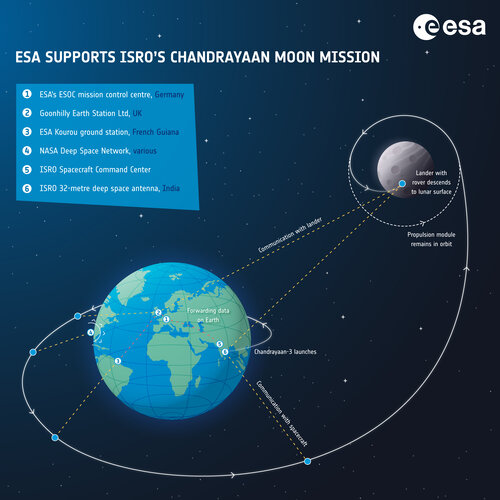
Euclid’s large halo around indefinitely small point
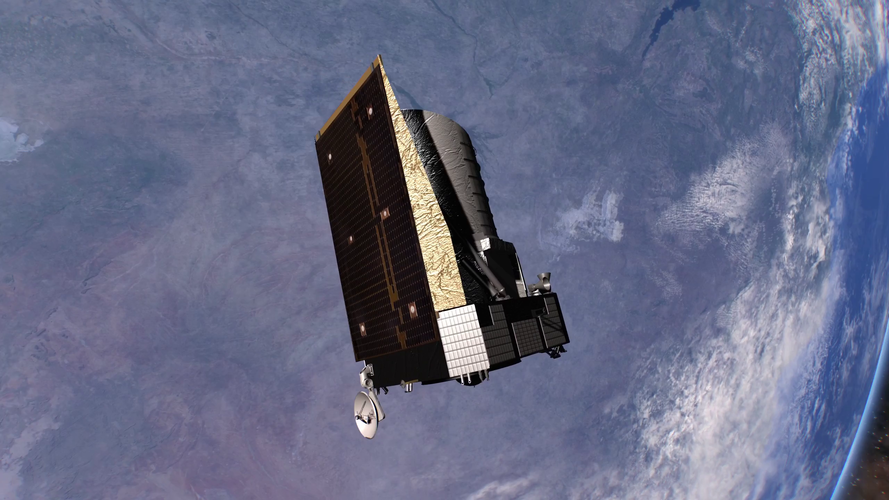
Space awaits you! More ESA vacancies now open for applications
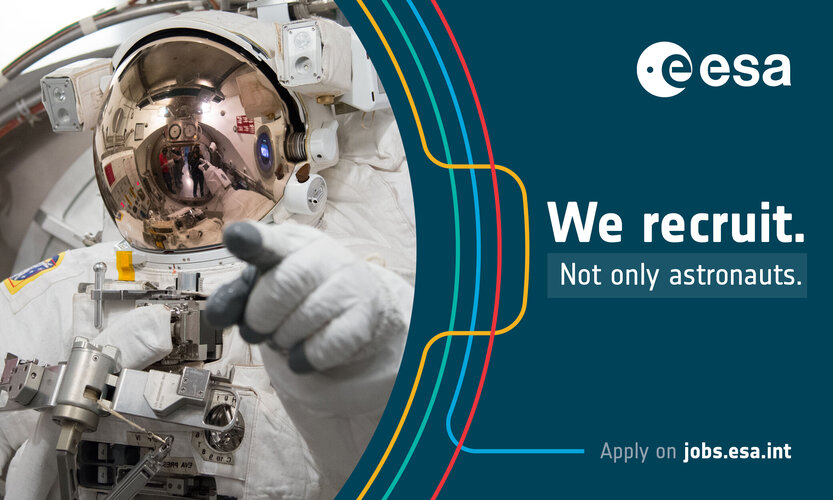
In March, we announced that 2023 would see the publication of over 300 vacancies at ESA. New vacancies keep being published as we continue our search for talented and motivated professionals to join our teams across Europe and support our mission of the peaceful exploration of space for the benefit of everyone. Could ESA be the next step in your career? Read more to find out!
Martian treasure hunt in Iceland
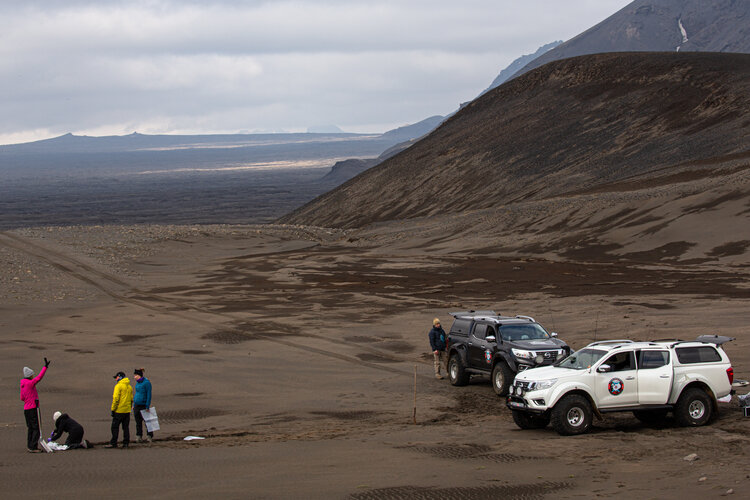 Image:
Image:
A team of martian scientists scouts the foothills of a volcano in Iceland hunting for a particular type of soil that matches samples collected by NASA’s Perseverance rover on the Red Planet.
The majestic landscape has a rusty colour from the dark, dense rock ejected during volcanic eruptions. The volcanic terrain, cool temperatures and sparse vegetation make the area very similar to ancient Mars. These conditions helped Iceland become the first European stopover for a treasure hunt that is searching for Mars-like samples around the world.
The effort is part of the joint Mars Sample Return
OceanMind selects Spire Global's satellite ship-tracking data to combat illegal fishing
 Spire Global, Inc. (NYSE: SPIR) ("Spire" or "the Company"), a global provider of space-based data, analytics and space services, was selected by OceanMind, a leader in marine enforcement and compliance, to extend its agreement in providing real-time automatic identification system (AIS) vessel-tracking data. Spire has been providing AIS data to OceanMind since 2019.
OceanMind supports fish
Spire Global, Inc. (NYSE: SPIR) ("Spire" or "the Company"), a global provider of space-based data, analytics and space services, was selected by OceanMind, a leader in marine enforcement and compliance, to extend its agreement in providing real-time automatic identification system (AIS) vessel-tracking data. Spire has been providing AIS data to OceanMind since 2019.
OceanMind supports fish 
 Image:
Moon stance
Image:
Moon stance 







